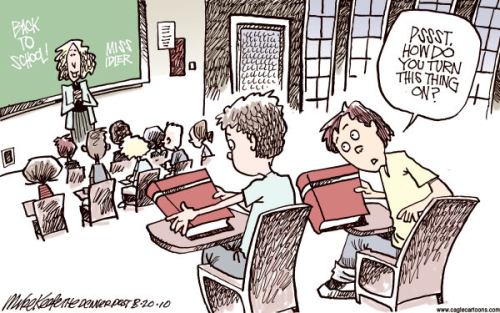By Amanda Ann Klein (@amandaannklein)
 Over the past few years I’ve begun to use class blogs and Twitter in the classroom, which encourage multilevel verbal and written engagement with the course materials. What I especially like about these digital tools is that they don’t replace our face-to-face meetings, they enhanceand invigorate them. Tara McPherson argues that the digital humanities are producing a new breed of humanist: the multimodal scholar. Multimodal scholars believe that “hands-on engagement with digital forms reorients the scholarly imagination” and “understand their arguments and their objects of study differently, even better, when they approach them through multiple modalities and emergent and interconnected forms of literacy.” Thus for me the intersection of digital humanities and media studies lies in the creation of, to borrow McPherson’s term, “multimodal students,” who use digital learning tools like class blogs and Twitter feeds to better study the media that surrounds them.
Over the past few years I’ve begun to use class blogs and Twitter in the classroom, which encourage multilevel verbal and written engagement with the course materials. What I especially like about these digital tools is that they don’t replace our face-to-face meetings, they enhanceand invigorate them. Tara McPherson argues that the digital humanities are producing a new breed of humanist: the multimodal scholar. Multimodal scholars believe that “hands-on engagement with digital forms reorients the scholarly imagination” and “understand their arguments and their objects of study differently, even better, when they approach them through multiple modalities and emergent and interconnected forms of literacy.” Thus for me the intersection of digital humanities and media studies lies in the creation of, to borrow McPherson’s term, “multimodal students,” who use digital learning tools like class blogs and Twitter feeds to better study the media that surrounds them.
While I found Twitter easy to use and track with simple hashtags in my smaller seminars, when I used Twitter is my 116-student Introduction to Film classroom, it became unwieldy. Our hashtag feed was cluttered with spam, many student tweets never showed up in the feed (even though they were using the hashtag properly) and it was incredibly time consuming to count each student’s tweets, log them, and archive them. As far as I know, there is no tool that streamlines this process for instructors using Twitter in the classroom. I know nothing about coding or apps, so I would like help in creating/building an app for Twitter in the classroom (that pulls tweets with a hashtag, alphabetizes them, removes all spam and archives the tweets).
Works cited: McPherson, Tara. “Introduction: Media Studies and the Digital Humanities.” Cinema Journal 48.2 (2009): 119-123





